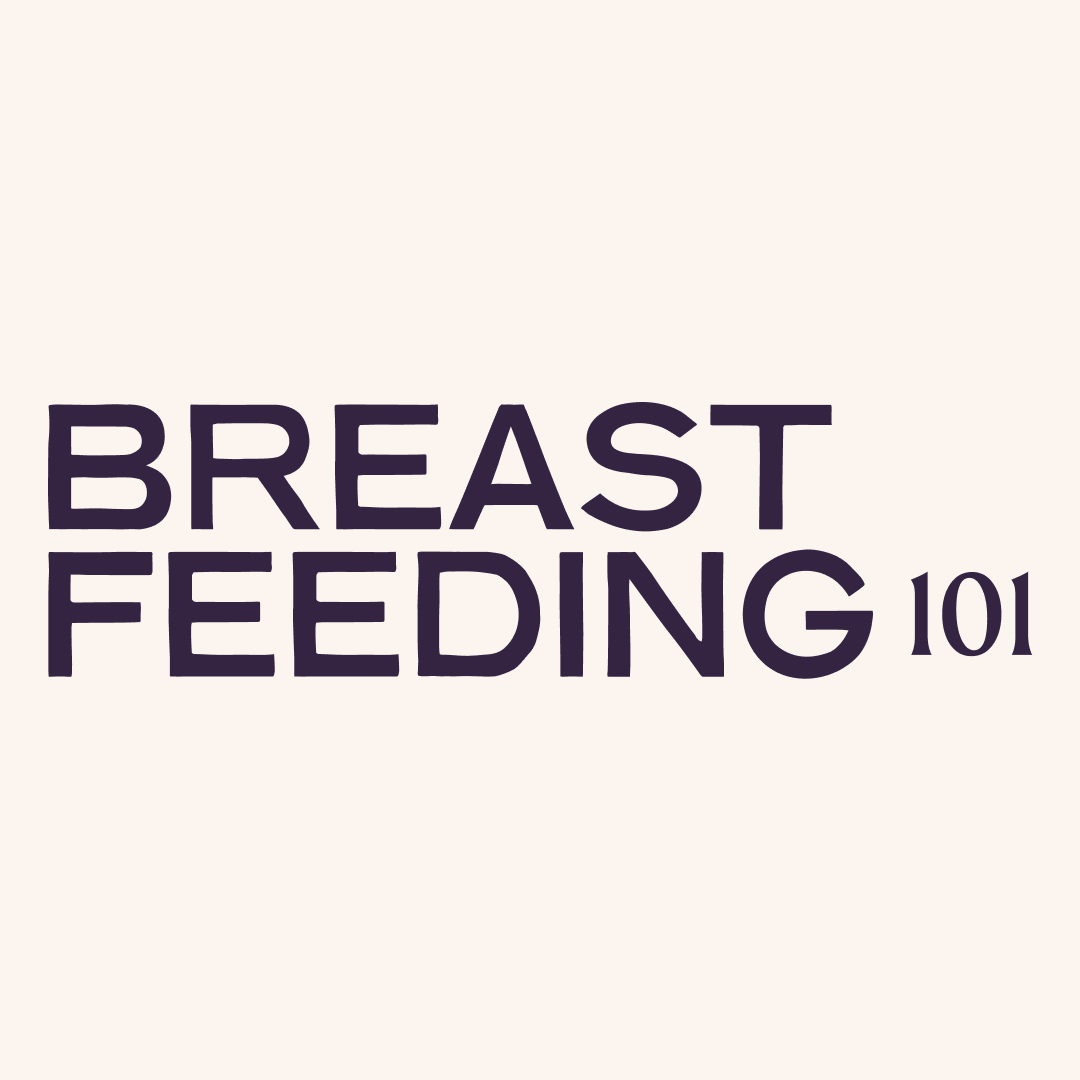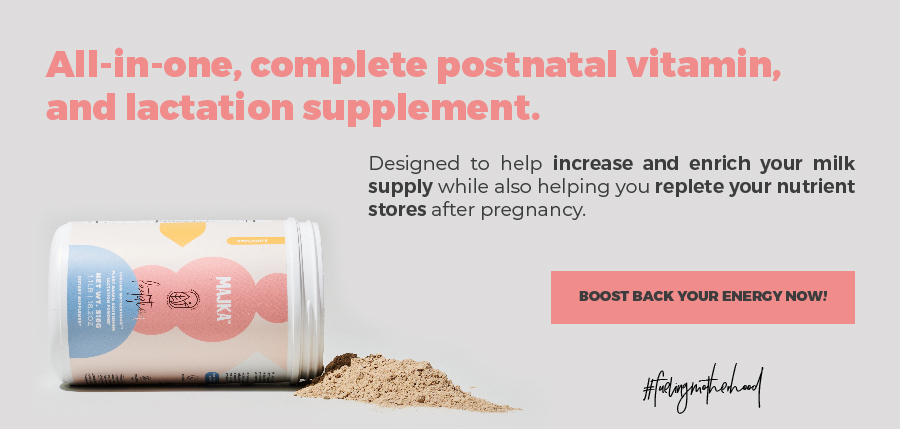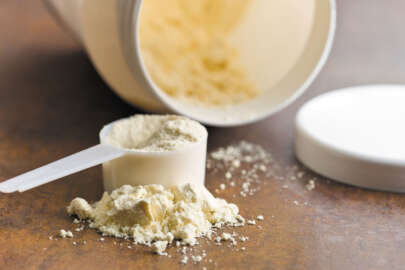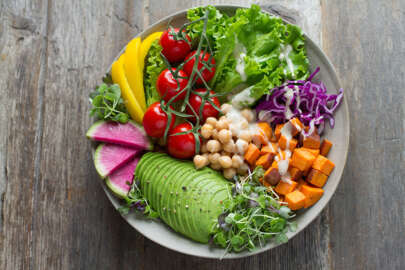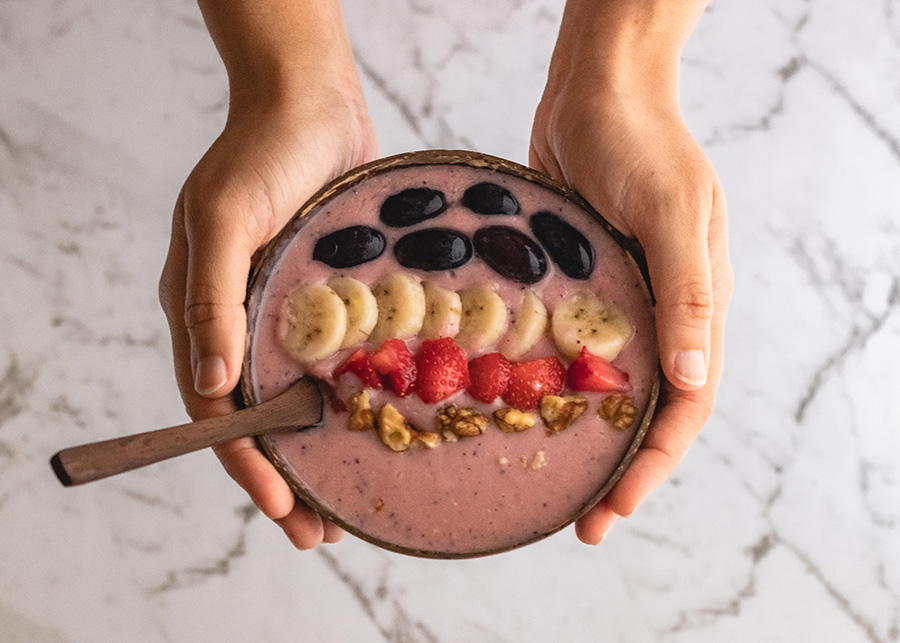
Healthy eating habits have a positive impact on your energy and body, which directly translates to your breast milk supply. Staying nourished and hydrated – meeting recommended nutritional needs – is key to an optimal postnatal recovery.
It’s never too late to adopt healthier diet habits, and trying to do so should not be hard for you, as principles of healthy nutrition for pregnancy also apply during the breastfeeding period; you should aim to continue creating a routine with meals rich in proteins, vitamins, and other minerals.
As a nursing mom, you are probably surrounded by tons of information or advice on what is better for you and your baby, which can be confusing and sometimes misleading. To help you, we have gathered some important yet simple breastfeeding diet tips for you to consider which may improve your milk supply, overall health, and your child’s development.
Don’t allow irregular meal gaps
Avoid going on a strict diet to lose weight, eat on time, and avoid skipping meals. Remember that breastfeeding requires a big effort from your body, and your food choices should be as nutritious as possible, as you and your baby have specific needs. Be sure to get around 300 to 500 extra calories a day to keep an adequate milk supply.
Try to stick to regular time frames and patterns to create body nutrition memory, as skipping meals can bring issues like a decrease in your metabolism’s performance, causing your energy levels to drop; making it more difficult to be active and be able to properly care for your baby.
Do eat frequently and snack
Believe or not, having your digestive system in constant movement could even help support your weight loss goals. Keep in mind that food is our main source of energy, so having a higher number of meals will give you more energy throughout the day.
Aim for three meals and at least two snacks everyday, add more snacks if you’re feeling hungry during the breastfeeding process – eat frequently throughout the day and avoid long gaps of no food consumption.
If you have a busy lifestyle or find yourself with little time to eat, avoid junk food with sugar and fats that have no nutritious value and try eating natural snacks instead, like pieces of fresh or dryed fruit, natural smoothies, nuts or vegetable mixes to dip, are all good options to have a nutritious snack and meet your nutrition needs.
Don’t ignore iron absorption
Around half of anemia diagnoses in breastfeeding women are caused by iron deficiency during pregnancy and postpartum periods.
After the baby arrives, some women can experience a significant loss of iron in their blood – feeling small but persistent symptoms like fatigue and weakness – something so common that many mothers don’t even realize that they may have anemia.
Along with a diet rich in iron (red meat, poultry, seafood, dark leafy greens, and beans), avoid consuming iron-dense foods such as tea and other products containing caffeine, as these can reduce absorption of this mineral up to 64%.
Do add galactagogues to your diet
Substances that boost your milk supply production are called galactagogues; these are herbs normally found in supplements, lactation powders, caffeine-free teas or lactation oats that you can drink in smoothies, prepare fruit bowls or delicious food with, like home baked cookies or energy bars.
Even though research on galactagogues is still to be done to further confirm the entire benefits for nursing mothers, whole foods containing them are considered a very nutritious alternative. Some ingredients that are considered to have galactagogues are dark leafy greens, whole grains, garlic, quinoa, almonds, turmeric, cumin among other spices and seeds.
Don’t supplement without advice
Studies on undernourished women show many benefits of supplementing their breastfeeding diet with different minerals and nutrients, but if you’re just looking to give your body a boost, seek guidance so you won’t end up adding substances your body doesn’t really need and that could create a potential health risk for you and your baby.
Do not ever self-medicate and consult your pediatrician or doctor before opting for any medication on your own. Even for everyday supplements that you might be used to taking, check with an expert first to rule out any disadvantages and to find out whether it is safe to go through with certain treatments while breastfeeding.
Do practice diet clarity
Finally, one of the most basic breastfeeding diet tips but still important to keep in mind is to practice what we call “diet clarity”. This term means being honest about the foods you are consuming to your family, pediatrician, lactation consultant, and yourself.
Your diet as a lactating mother does not revolve around avoiding certain foods, however, you should keep a close track of the meals and snacks you consume – for example, in a journal – in order to keep a close register on how you are feeling and the general health of your baby. If you notice any specific foods not making you or your baby feel good or causing allergic reactions like stomach ache, excess gas or rashes, seek the opinion of an expert and try adjusting your diet if necessary.
Taking care of yourself and your baby through small adjustments to your diet is a great start to give yourself and your baby the best nourishment possible while gaining confidence on your journey as a new mom. Make sure to subscribe and get all the information you need on important aspects regarding lactation. Breastfeeding 101, your guide for breastfeeding.
Breastfeeding 101


